Dec. 19, 2016:
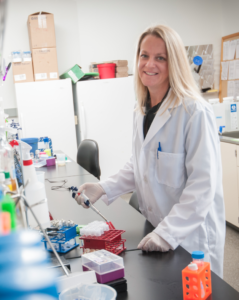
Andrea L. Kasinski, PhD
Investigator Spotlight
Andrea L. Kasinski, PhD
Educational Background: PhD, Emory University (2009), Postdoctoral Fellow, Yale University
Research Interests: My laboratory works on non-coding RNA biology and therapeutics. Specifically, we focus on identifying biologically important RNAs whose misexpression drives the tumorigenic process. We then utilize this information to design, develop, and implement RNA-based therapeutics. Specifically, evidence-based approaches are being developed to identify microRNAs that drive the process of tumorigenesis, or to identify microRNAs that are required for tumor cell maintenance or therapeutic resistance. Using this data, we then develop various strategies to alter the concentration of theses microRNAs in vivo using either small molecule inhibitors, or novel targeting approaches that deliver microRNAs in the absence of toxic delivery vehicles. Our overarching goal is to generate substantial knowledge that will lead to the clinical utility of non-coding RNAs.
Fun Facts: I have a loving and supportive husband, Scott Haymond, and two incredible step-children, Abby and Parker.
Growing up in a traditional blue-collar family, I had little knowledge on what a PhD was. A great deal of my scientific success is due to the late Dr. Dean Danner at Emory University, a fantastic mentor that recognized my strengths and recommended that I pursue my doctorate.
Originally I wanted to be a cardiac transplant surgeon; however, after I got involved in research I recognized that my passion was in research and discovery.
Read More
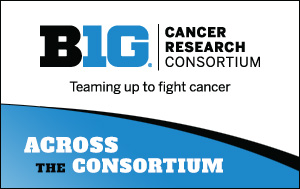

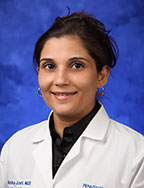
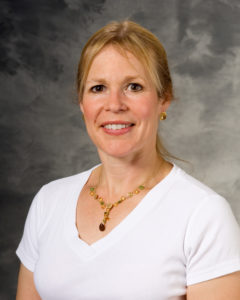 of blood cancer. She serves as co-chair of the Big Ten CRC’s Multiple Myeloma Clinical Trial group, along with Dr. Craig Cole of the University of Michigan. “Our mission at the Big Ten CRC is to foster collaboration between researchers and industry partners in order to develop novel therapies, particularly for patients with relapsed myeloma,” Callander said. “We also hope to provide young investigators a venue to explore new treatment paradigms.”
of blood cancer. She serves as co-chair of the Big Ten CRC’s Multiple Myeloma Clinical Trial group, along with Dr. Craig Cole of the University of Michigan. “Our mission at the Big Ten CRC is to foster collaboration between researchers and industry partners in order to develop novel therapies, particularly for patients with relapsed myeloma,” Callander said. “We also hope to provide young investigators a venue to explore new treatment paradigms.”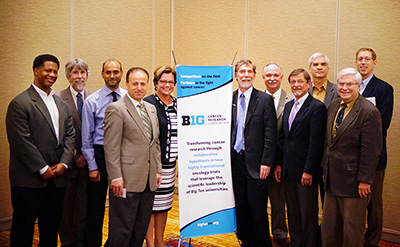
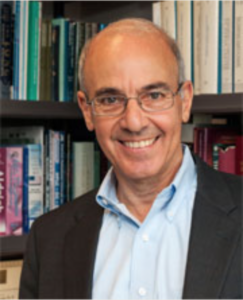 the
the 













Subscribe to the Big Ten CRC Newsletter X
X Facebook
Facebook YouTube
YouTube